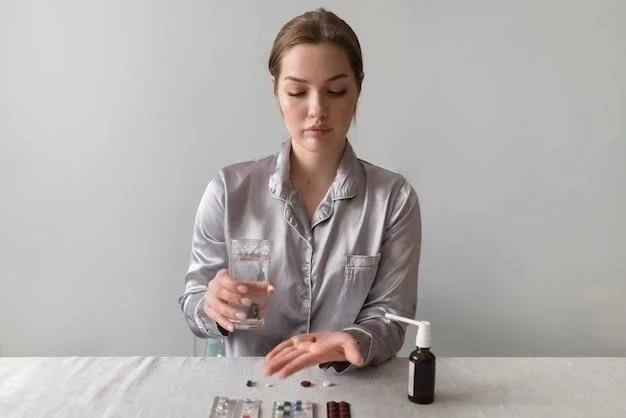Can I Take Tylenol With Prednisone

Can I Take Tylenol With Prednisone?
Tylenol and prednisone are generally safe to take together and are not known to interact with each other. However‚ it is important to talk to your doctor before taking any medications together‚ as there may be other factors to consider.
Tylenol (acetaminophen) and prednisone are two medications that are commonly used to treat a variety of conditions. Tylenol is a pain reliever and fever reducer‚ while prednisone is a corticosteroid that is used to reduce inflammation. Both medications are generally safe to take together‚ but there are some potential side effects that you should be aware of.
In this article‚ we will discuss the safety and efficacy of taking Tylenol with prednisone‚ as well as the potential side effects and drug interactions. We will also provide some tips on how to take these medications safely and effectively.
It is important to note that this article is not intended to provide medical advice. If you have any questions about taking Tylenol with prednisone‚ please talk to your doctor.

What is Tylenol?
Tylenol is a brand name for acetaminophen‚ which is a pain reliever and fever reducer. It is one of the most commonly used medications in the world and is available over-the-counter in a variety of forms‚ including tablets‚ capsules‚ and liquids.
Acetaminophen works by blocking the production of prostaglandins‚ which are chemicals that cause pain and inflammation. It is effective in reducing mild to moderate pain‚ such as headaches‚ backaches‚ and muscle aches. It can also be used to reduce fever.
Tylenol is generally safe to take for most people‚ but it is important to follow the dosage instructions carefully. Acetaminophen can cause liver damage if it is taken in high doses or for long periods of time.
It is important to note that Tylenol should not be taken by people who have liver disease or who are allergic to acetaminophen.

What is Prednisone?
Prednisone is a corticosteroid medication that is used to reduce inflammation. It is a synthetic version of the hormone cortisol‚ which is produced naturally by the adrenal glands. Prednisone is available in tablet form and is taken orally.
Prednisone is used to treat a wide variety of conditions‚ including asthma‚ allergies‚ arthritis‚ and lupus. It can also be used to suppress the immune system after organ transplantation.
Prednisone works by reducing inflammation and suppressing the immune system. It is effective in treating a variety of conditions‚ but it can also cause side effects‚ such as weight gain‚ fluid retention‚ and increased blood sugar levels.
It is important to note that prednisone should not be taken by people who have certain medical conditions‚ such as uncontrolled diabetes or infections. It is also important to take prednisone exactly as prescribed by your doctor.
Safety and Drug Interactions
Tylenol and prednisone are generally safe to take together‚ but there are some potential side effects and drug interactions that you should be aware of.
Side effects
The most common side effects of Tylenol are stomach upset‚ nausea‚ and vomiting. These side effects are usually mild and go away after a few days.
The most common side effects of prednisone include weight gain‚ fluid retention‚ and increased blood sugar levels. These side effects are usually mild and go away after a few weeks.
Drug interactions
Tylenol can interact with other medications‚ such as blood thinners and anticoagulants. Prednisone can also interact with other medications‚ such as diabetes medications and blood pressure medications.
It is important to tell your doctor about all of the medications you are taking‚ including over-the-counter medications‚ vitamins‚ and supplements. This will help your doctor to determine if there are any potential drug interactions.
Contraindications
Tylenol should not be taken by people who have liver disease or who are allergic to acetaminophen. Prednisone should not be taken by people who have certain medical conditions‚ such as uncontrolled diabetes or infections.
It is important to talk to your doctor before taking Tylenol or prednisone if you have any medical conditions or are taking any other medications.
Dosage and Administration
The dosage of Tylenol and prednisone will vary depending on the condition being treated and the individual patient.
Tylenol
The usual dosage of Tylenol for adults is 500 to 1‚000 mg every 4 to 6 hours as needed for pain or fever. The maximum daily dosage of Tylenol is 4‚000 mg.
Prednisone
The usual dosage of prednisone for adults is 5 to 60 mg per day. The dosage will vary depending on the condition being treated and the individual patient.
It is important to take Tylenol and prednisone exactly as prescribed by your doctor. Do not take more or less of these medications than prescribed.
Tylenol can be taken with or without food. Prednisone should be taken with food to reduce the risk of stomach upset.
If you have any questions about the dosage or administration of Tylenol or prednisone‚ please talk to your doctor or pharmacist.
Contraindications
Tylenol should not be taken by people who have liver disease or who are allergic to acetaminophen.
Prednisone should not be taken by people who have certain medical conditions‚ such as⁚
- Uncontrolled diabetes
- Infections
- Stomach ulcers
- Glaucoma
- Kidney disease
- Heart disease
- High blood pressure
It is important to tell your doctor about all of your medical conditions before taking Tylenol or prednisone.
If you are not sure whether you should take Tylenol or prednisone‚ talk to your doctor.
Precautions
Tylenol should be used with caution in people who have liver disease or who are taking other medications that can damage the liver.
Prednisone should be used with caution in people who have certain medical conditions‚ such as⁚
- Diabetes
- High blood pressure
- Heart disease
- Kidney disease
- Osteoporosis
- Glaucoma
- Stomach ulcers
Prednisone can also weaken the immune system‚ making it more likely for people to get infections.
It is important to tell your doctor about all of your medical conditions before taking Tylenol or prednisone.
If you are not sure whether you should take Tylenol or prednisone‚ talk to your doctor.
Side Effects
Tylenol
The most common side effects of Tylenol are stomach upset‚ nausea‚ and vomiting. These side effects are usually mild and go away after a few days.
Less common side effects of Tylenol include⁚
- Skin rash
- Hives
- Swelling of the face‚ lips‚ tongue‚ or throat
- Difficulty breathing
- Wheezing
- Dizziness
- Fainting
Prednisone
The most common side effects of prednisone include⁚
- Weight gain
- Fluid retention
- Increased blood sugar levels
Less common side effects of prednisone include⁚
- Skin rash
- Acne
- Increased hair growth
- Menstrual irregularities
- Mood changes
- Sleep problems
- Increased risk of infection
If you experience any side effects from Tylenol or prednisone‚ talk to your doctor.
Common Side Effects
Tylenol
The most common side effects of Tylenol are⁚
- Stomach upset
- Nausea
- Vomiting
These side effects are usually mild and go away after a few days.
Prednisone
The most common side effects of prednisone include⁚
- Weight gain
- Fluid retention
- Increased blood sugar levels
These side effects are usually mild and go away after a few weeks.
If you experience any of these side effects‚ talk to your doctor.
Serious Side Effects
Tylenol
Serious side effects from Tylenol are rare‚ but can occur if the medication is taken in high doses or for long periods of time. These side effects include⁚
- Liver damage
- Kidney damage
- Blood disorders
Prednisone
Serious side effects from prednisone are also rare‚ but can occur if the medication is taken in high doses or for long periods of time. These side effects include⁚
- Cushing’s syndrome
- Osteoporosis
- Glaucoma
- High blood pressure
- Diabetes
- Increased risk of infection
If you experience any of these serious side effects‚ stop taking Tylenol or prednisone and talk to your doctor immediately.
Drug Interactions
Tylenol can interact with other medications‚ such as⁚
- Blood thinners
- Anticoagulants
- Cholesterol-lowering medications
- Diabetes medications
Prednisone can also interact with other medications‚ such as⁚
- Blood pressure medications
- Diuretics
- Diabetes medications
- Anticoagulants
It is important to tell your doctor about all of the medications you are taking‚ including over-the-counter medications‚ vitamins‚ and supplements. This will help your doctor to determine if there are any potential drug interactions.
NSAIDs
NSAIDs are a class of medications that are used to relieve pain and inflammation. They include medications such as ibuprofen‚ naproxen‚ and celecoxib.
NSAIDs can interact with prednisone and increase the risk of stomach bleeding. This is because both NSAIDs and prednisone can irritate the stomach lining.
It is important to avoid taking NSAIDs with prednisone unless your doctor specifically tells you to do so. If you must take NSAIDs with prednisone‚ your doctor may recommend taking a proton pump inhibitor (PPI) to protect your stomach lining.
PPIs are a class of medications that reduce stomach acid production. They include medications such as omeprazole‚ lansoprazole‚ and rabeprazole.
Acetaminophen
Acetaminophen is a pain reliever and fever reducer that is sold under the brand name Tylenol. It is also found in many other over-the-counter and prescription medications.
Acetaminophen is generally safe to take with prednisone‚ but it is important to be aware of the potential side effects. Acetaminophen can cause liver damage if it is taken in high doses or for long periods of time.
The maximum daily dosage of acetaminophen is 4‚000 mg. This includes acetaminophen that is taken in all forms‚ including over-the-counter medications‚ prescription medications‚ and supplements.
If you are taking prednisone‚ it is important to talk to your doctor about the safest way to take acetaminophen. Your doctor may recommend taking a lower dose of acetaminophen or taking it less often.
Other Drug Interactions
Prednisone can interact with a variety of other medications‚ including⁚
- Blood thinners
- Anticoagulants
- Cholesterol-lowering medications
- Diabetes medications
- Blood pressure medications
- Diuretics
- Anticonvulsants
- Immunosuppressants
It is important to tell your doctor about all of the medications you are taking‚ including over-the-counter medications‚ vitamins‚ and supplements. This will help your doctor to determine if there are any potential drug interactions.
When to Call a Doctor
You should call your doctor if you experience any of the following side effects while taking Tylenol or prednisone⁚
- Stomach pain
- Nausea
- Vomiting
- Diarrhea
- Constipation
- Skin rash
- Hives
- Swelling of the face‚ lips‚ tongue‚ or throat
- Difficulty breathing
- Wheezing
- Dizziness
- Fainting
You should also call your doctor if you have any other concerns about taking Tylenol or prednisone.
Alternative Pain Relievers for Use with Prednisone
If you are unable to take Tylenol with prednisone‚ there are other pain relievers that you can take. These include⁚
- Ibuprofen
- Naproxen
- Celecoxib
- Meloxicam
These medications are all NSAIDs‚ which means that they work by reducing inflammation. However‚ they can also increase the risk of stomach bleeding‚ so it is important to talk to your doctor before taking them.
Your doctor may also recommend taking a PPI to protect your stomach lining. PPIs are a class of medications that reduce stomach acid production. They include medications such as omeprazole‚ lansoprazole‚ and rabeprazole.
Tylenol and prednisone are generally safe to take together‚ but there are some potential side effects and drug interactions that you should be aware of. It is important to talk to your doctor before taking these medications together.
Here are some tips for taking Tylenol and prednisone safely⁚
- Take Tylenol and prednisone exactly as prescribed by your doctor.
- Do not take more or less of these medications than prescribed.
- Take Tylenol with food to reduce the risk of stomach upset.
- Tell your doctor about all of the medications you are taking‚ including over-the-counter medications‚ vitamins‚ and supplements.
- Call your doctor if you experience any side effects from Tylenol or prednisone.
By following these tips‚ you can help to ensure that you are taking Tylenol and prednisone safely and effectively.